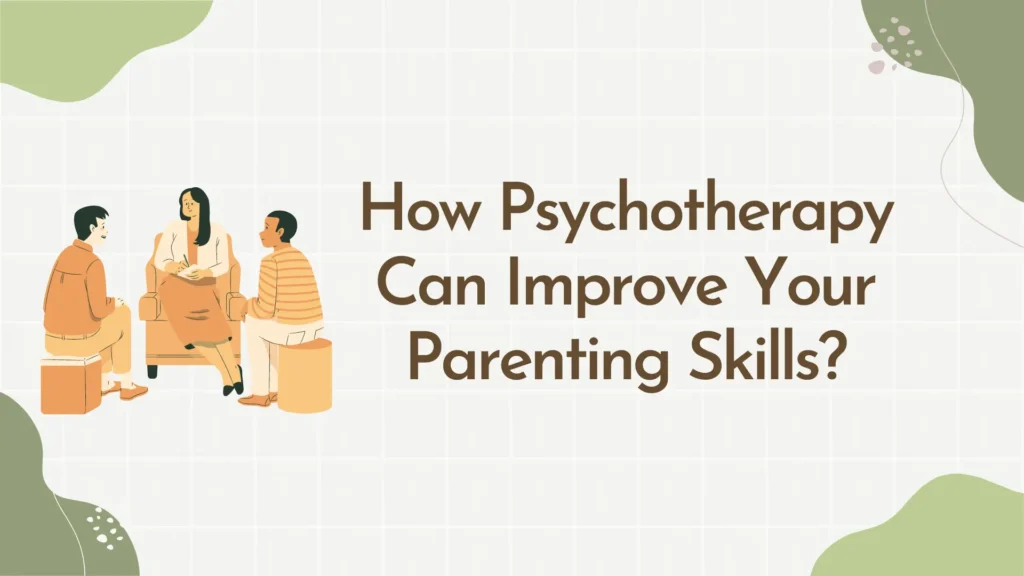Table of Contents
How Psychotherapy Can Improve Your Parenting Skills?
Parenthood is a journey filled with rewarding moments and complex challenges. As parents strive to create nurturing environments for their children, they often encounter various obstacles that can impact their emotional well-being and parenting effectiveness. Psychotherapy offers a valuable resource for parents seeking to enhance their skills and foster stronger family relationships. Here, we explore how psychotherapy can support parents in their journey, offering insights into emotional regulation, communication, and self-care.
For parents seeking professional support, Marcia Buhler offers comprehensive parenting counseling online. Marcia specializes in helping families navigate the complexities of parenthood, providing tailored strategies to enhance parenting skills and foster healthy family dynamics. Based in Edmonton, Marcia exclusively offers online services, making it convenient for parents to access quality parenting counselling Edmonton from the comfort of their homes. To learn more about her services and schedule a session.

The Challenges of Parenting
Parenting encompasses a wide range of experiences, from the early days of caring for a newborn to the complexities of raising teenagers and adjusting to an empty nest. Each stage presents unique challenges that require emotional resilience and adaptability. External stressors, such as job pressures, financial concerns, and personal relationships, further complicate the parenting journey. These factors can affect a parent’s ability to maintain a healthy family dynamic.
The Role of Psychotherapy in Parenting
Psychotherapy, or talk therapy, provides parents with tools and strategies to manage their emotions, improve communication, and develop effective parenting techniques. By engaging in therapy sessions, parents can gain deeper insights into their thoughts and behaviors, identify triggers, and learn coping mechanisms. This process helps parents to better understand themselves and their children, leading to more effective and compassionate parenting.
Understanding Parenting Styles
One of the critical aspects of psychotherapy for parents is understanding and evaluating their parenting styles. Psychologists identify four primary parenting styles: authoritative, authoritarian, permissive, and neglectful. Each style has distinct characteristics and impacts a child’s development differently.
- Authoritative: This style balances high responsiveness with clear boundaries. Authoritative parents are supportive yet demanding, fostering a healthy balance between discipline and affection.
- Authoritarian: Marked by strict discipline and high expectations, this style often lacks warmth and empathy, which can affect a child’s emotional needs.
- Permissive: Permissive parents are highly responsive but set few boundaries, leading to challenges in self-regulation for the child.
- Neglectful: Characterized by a lack of involvement, this style can lead to emotional and behavioral issues in children due to insufficient parental support.
Through psychotherapy, parents can assess their style, understand its effects, and make necessary adjustments to better meet their children’s needs.
Emotional Regulation and Mindful Communication
Effective parenting requires emotional regulation and mindful communication. Emotional regulation involves recognizing and managing one’s emotions in a healthy way, which is crucial for modeling appropriate behavior to children. Mindful communication, which includes active listening and expressing empathy, helps parents build stronger connections with their children.
Therapy can teach parents techniques from Cognitive Behavioral Therapy (CBT) or Dialectical Behavior Therapy (DBT) to improve these skills. By practicing self-awareness and overcoming communication barriers, parents can create a more supportive and understanding family environment.
Implementing Self-Care and Resilience
Self-care is vital for maintaining a nurturing family dynamic. Parents must prioritize their well-being to effectively care for their children. Engaging in activities like exercise, relaxation, and quality family time contributes to overall emotional health. Therapy encourages parents to view self-care as an essential part of being a good parent, rather than an indulgence.
Building resilience is another crucial aspect. Resilient families can better cope with challenges and setbacks. Therapists can help parents develop strategies to foster resilience, ensuring that both they and their children can navigate life’s difficulties more effectively.
Benefits of Psychotherapy for Parents
Parents who engage in psychotherapy can expect several benefits, including:
- Increased Self-Awareness: Understanding personal emotions and behaviors helps parents identify and address issues impacting their parenting.
- Improved Communication: Learning effective communication techniques strengthens the parent-child relationship.
- Stress Reduction: Therapy provides a safe space for parents to express emotions and develop stress management strategies.
- Enhanced Self-Care: Recognizing the importance of self-care boosts confidence and overall well-being.
- Stronger Relationships: Improved self-awareness and communication skills contribute to healthier family relationships.
Conclusion
Parenthood is a multifaceted journey requiring continuous growth and support. Psychotherapy offers parents valuable tools to navigate the challenges of raising children, fostering stronger family bonds and healthier home environments. By seeking therapeutic support, parents can enhance their skills, improve their emotional health, and create a more nurturing atmosphere for their families.